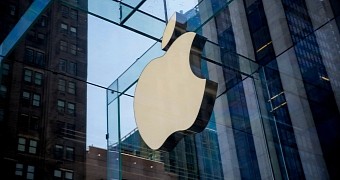Apple has been rumored to be pushing hard for a partnership with LG that would have the South Korean company manufacture the OLED screens for iPhone models starting 2018, but it turns out that the plan isn’t going well and Cupertino might be forced to work with Samsung for another year.
Even though Apple has a contract with Samsung for the production of OLED screens until the end of 2018, the company wanted to reduce its reliance on the South Korean firm and turn to other companies whose production would be solely focused on its own products.
Earlier this year, it was revealed that Apple invested in a new LG production facility whose own activity would be building OLED displays for future iPhone models. All iPhone versions launching in 2018 and onwards were said to be equipped with OLED displays exclusively.
iPhone 8 delay due to Samsung OLED?
But as it turns out, LG can’t meet the production yield that Apple requested and Apple might have to stick with Samsung for another year. A report from Bloomberg says that LG can’t start full production of OLED screens “until at least 2019,” which means that depending on how work advances on setting up the production lines, it could take even longer to begin manufacturing iPhone displays.
One of the problems that LG is trying to deal right now is the lack of evaporation machines, mostly because of the competition from Samsung which secures most of the production equipment from suppliers.
Apple is reportedly looking into several options for the 2018 lineup of iPhones, including launching some models equipped with LG displays with limited supplies. Also, the company is said to be pondering a possible release of iPhones featured LG technology at a later time during the lifecycle of the next generation, as the company reaches full production capacity.
People with knowledge of the matter said earlier this year that the iPhone 8, which is set to launch on September 12, could be delayed because of the supply issues, with Samsung partially to blame for its limited OLED production capacity. A confirmation regarding a possible delay hasn’t been offered.

 14 DAY TRIAL //
14 DAY TRIAL //